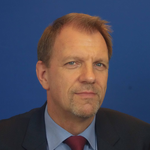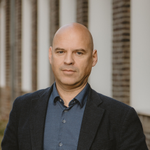- Welcome coffee
- Opening session: A Blueprint for Smart & Sustainable DHC
Aurélie Beauvais•Niels Fuglsang•Birger Lauersen•Kadri Simson•Frauke Thies•Chiara MartinelliA new political mandate is on the horizon, and with it, the prospect of continuing our decarbonisation efforts right up to the next major milestone: 2040.
The war in Ukraine exposed Europe's critical dependence on fossil fuels and the central role of the heating and cooling sector in breaking away from them. Could the next mandate be the driving force to fast-track the EU heating and cooling transition? What will it take, and what role can district heating and cooling play in this development?
In this opening session, we will be presenting Euroheat & power's "Blueprint for smart and sustainable district heating and cooling", a set of high-level proposals and recommendations on how to harness the full potential of heating & cooling networks and exchange with high-level European and national policymakers on the way forward."
Aurélie Beauvais
Managing Director of Euroheat & Power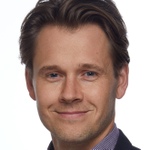
Niels Fuglsang
Member of the European Parliament
Birger Lauersen
President at Euroheat & Power
Kadri Simson
European Commissioner for Energy at European Commission
Frauke Thies
Executive Director of Agora Energiewende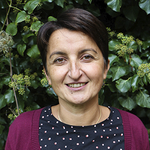
Chiara Martinelli
Director of Climate Action Network Europe asbl
- Coffee break
- District Heating and Electrification: synergies and opportunities
Matthieu Ballu•Thomas Nowak•Olivier Racle•Peter Van-Den-Heede•Emma Wiesner•Aurélie BeauvaisSupporting both district heating and electrification policies is sometimes depicted as a contradiction. Is it, though? Projects on the ground paint a different story, where district heating and electricity work hand in hand to achieve a more flexible and decarbonised energy system. What synergies and opportunities lie behind the deeper integration of electricity and district energy infrastructure? What are the regulatory and industry needs? In this session, association, policy and corporate leaders will share views on how to unlock this extraordinary potential.
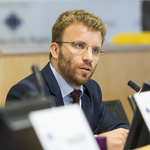
Matthieu Ballu
Policy Officer, Directorate General for Energy, Renewable Energy Unit of European Commission
Thomas Nowak
Secretary General at European Heat Pump Association
Olivier Racle
Head of District Heating & Cooling at ENGIE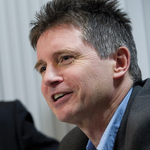
Peter Van-Den-Heede
Head of Sales and Marketing ABB Motion, Belux at ABB
Emma Wiesner
Member of the European Parliament
Aurélie Beauvais
Managing Director of Euroheat & Power
- Lunch break
- Accelerating building renovations for ambitious heat transitions
Femke De Jong•Adrian Joyce•Stefan Moser•Charlotte Owen•Michael Hunnicke JensenTo deploy efficient heating and cooling solutions and reduce energy poverty, it is imperative to accelerate the renovation of Europe's worst-performing buildings. District heating and cooling networks offer significant energy efficiency gains, reaching their full decarbonisation potential when combined with building renovation strategies. Despite ambitious energy efficiency targets, building renovation is stagnating in Europe: how can we close the gap and develop integrated renovation strategies harnessing the potential of district heating and cooling solutions?

Femke De Jong
Director, Buildings Programme of European Climate Foundation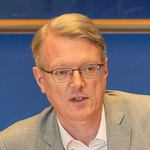
Adrian Joyce
Secretary General at EuroACE
Stefan Moser
Head of Unit, Buildings and Products at DG ENER at European Commission
Charlotte Owen
Head of Policy and Local Partnerships at Hemiko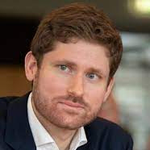
Michael Hunnicke Jensen
Head of EU Public Affairs at Grundfos
- Coffee break
- Objective 2030: quick-wins for a fossil-free future
Morten Helveg Petersen•Eloi Piel•Michael Strebl•Brian Vad Mathiesen•Maiju Westergren•Patrick van der Stigchel"Achieving energy independence" and "breaking free from fossil fuel use" are two sides of the same coin. In May 2022, the European Commission presented its proposal to RePowerEU, to drastically reduce Europe's consumption of imported natural gas while guaranteeing an affordable and secure energy supply to all European citizens. District heating and cooling solutions have a strong value proposition to drive this effort, but how much can be achieved and what is needed to make this happen? This session will host the exclusive launch of Aalborg University's study, quantifying the sector's contribution to reducing the use of fossil fuels in Europe by 2030 and reflecting on the policy framework needed to make this happen.
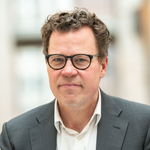
Morten Helveg Petersen
Member of the European Parliament
Eloi Piel
Director of Market Intelligence at Euroheat & Power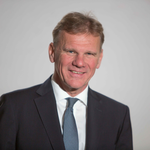
Michael Strebl
Chairman of the Executive Board at Wien Energie
Brian Vad Mathiesen
Professor at Aalborg University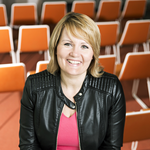
Maiju Westergren
Senior Vice President, Sustainability and Public Affairs at Helen
Patrick van der Stigchel
Vice president of Benelux and south west EU at Kingspan Logstor
- Coffee break
- Global District Energy Climate Awards Ceremony
Aurélie Beauvais•Zhuolun Chen•Aksana Krasatsenka•Michael Wiggin•Robin Wiltshire•Rob ThorntonIt is now more important than ever to recognise the excellence and resilience of district energy systems worldwide. It's time to award energy efficiency, innovation, and best-in-class examples of sustainable district heating & cooling solutions. This is the spirit behind the 2023 edition of the Global District Energy Climate Awards, an international initiative coordinated by the IEA-DHC, UN Environment Programme, Euroheat & Power, the International District Energy Association (IDEA) and the Asian Pacific Urban Energy Association (APUEA). Join us for a memorable award ceremony, followed by a cocktail and dinner reception!

Aurélie Beauvais
Managing Director of Euroheat & Power
Zhuolun Chen
Senior Advisor at UNEP Copenhagen Climate Centre
Aksana Krasatsenka
Director of Knowledge Transfer at Euroheat & Power
Michael Wiggin
Director of The Boltzmann Institute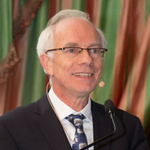
Robin Wiltshire
UK representative and Chairman at IEA-DHC
Rob Thornton
President & CEO of International District Energy Association (IDEA)
- Networking drinks and dinner
Aurélie Beauvais•Morten Helveg Petersen•Birger Lauersen•Martin RigaudJoin us to celebrate the district heating and cooling community, and pay tribute to the architects of the EU heating and cooling transition !
We will be honoured to welcome MEP Morten Helveg Petersen as special guest!
A big thanks to our Dinner Sponsor, Brugg Pipes.
See you at Bambino Café en Ville, Rue Ravenstein 64, 1000 Bruxelles
- Welcome coffee
- Efficient District Heating and Cooling: mapping the journey
Pauline Lucas•Tsvetelina Penkova•Hans van Steen•Valérie Séjourné•Victor Ferré•Samir AbboudThe recently adopted Energy Efficiency Directive establishes a clear path towards 100% renewables and waste heat supply and fully decarbonised DHC systems by 2050. This pathway requires, to a large extent, scaling significantly the use of renewable and waste heat sources in the district heating and cooling energy mix. This session will ask experts and policymakers to define the ingredients for achieving these goals while preserving and strengthening the sector's competitive edge regarding supply security and affordability.
- Coffee break
- Let's heat that money up! Financing the heating transition
Karine Bauler•Christian Bjerrum Jørgensen•Pierre De Montlivault•Oliver Frey•Gabriele Pesce•Lada StrelnikovaDistrict heating and cooling is a highly cost-effective solution, but project financing isn't always straightforward. The complex administrative procedures and highly decentralised nature of DHC projects can pose real problems in accessing public funding. At the same time, high upfront costs and long payback periods sometimes challenge the involvement of private investors. In this session, our experts roll up their sleeves to identify promising financing schemes and the regulatory developments needed to improve access to clean, affordable heat for all European citizens.

Karine Bauler
Investments Director of Kyotherm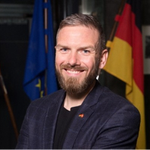
Christian Bjerrum Jørgensen
Energy Attaché at Royal Danish Embassy in Berlin
Pierre De Montlivault
Chairman at FEDENE
Oliver Frey
Chairman at ISOPLUS Group
Gabriele Pesce
Director of Innovation & Sustainable Finance at Euroheat & Power
Lada Strelnikova
Senior Principal Sustainable Investments at DWS Group
- Lunch break
- Consumer protection and transparency: building trust with local communities
Wim Jacobs•Birger Lauersen•Tomislav Novosel•Frans de HeijDistrict heating and cooling networks already supply more than 65 million European citizens and are set to at least double in size by 2040. With great power comes great responsibility. Ensuring competitive and transparent prices as well as robust consumer protection frameworks is critical to build trust with policymakers and accelerate market adoption. What are the lessons learned from the various ownership and regulation models developed in Europe, to ensure transparency and meet consumer protection requirements? This session will shed light on the challenges and best practices for the sector, discussing the role of European and national consumer protection frameworks in the way forward.
- Coffee break
- Skills for Scale
Julie Beaufils•Donna Gartland•Nicolai Kipp•Aksana Krasatsenka•Igor Krupenski•Mantas SekmokasIn October 2022, President Von Der Leyen declared 2023 the European Year of Skills to raise awareness on the exponential need for qualified workers driving the European energy and climate transition. The district heating and cooling industry is no exception: from engineering to project conception and installation, more workers are needed to achieve our expansion and decarbonisation objectives. How can industry, policymakers and organisations contribute to solving the gap?

Julie Beaufils
Secretary General at EuropeOn
Donna Gartland
CEO of Codema - Dublin's Energy Agency
Nicolai Kipp
Head of department at Danish District Heating Association
Aksana Krasatsenka
Director of Knowledge Transfer at Euroheat & Power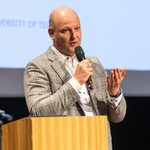
Igor Krupenski
Co-founder and CEO of Enerhack
Mantas Sekmokas
Policy Advisor DG EMPLOYMENT at European Commission
- Closing speech and networking drinks
Aurélie Beauvais



